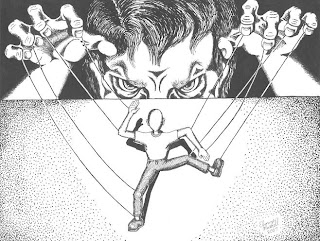"Piano" is an interesting poem. Not too sad and all about longing for the past--a concept we became familiar with previously this semester. It's because of the familiar theme that I considered writing about it but the other poem is equally fascinating.
"Bavarian Gentians"
By D.H. Lawrence
Not every man has gentians in his house
in Soft September, at slow, Sad Michaelmas.
Bavarian gentians, big and dark, only dark
darkening the daytime torchlike with the smoking blueness of Pluto's
gloom,
ribbed and torchlike, with their blaze of darkness spread blue
down flattening into points, flattened under the sweep of white day
torch-glower of the blue-smoking darkness, Pluto's dark-blue daze,
black lamps from the halls of Dio, burning dark blue,
giving off darkness, blue darkness, as Demeter's pale lamps give off
light
lead me then, lead me the way.
Reach me a gentian, give me a torch!
Let me guide myself with the blue, forked torch of a flower
down the darker and darker stairs, where blue is darkened on blueness
even where Persephone goes, just now, in from the frosted September
to the sightless realm where darkness is awake upon the dark
and Persephone herself is but a voice
or a darkness invisible enfolded in the deeper dark
of the arms Plutonic, and pierced with the passion of dense gloom,
among the splendor of torches of darkness, shedding darkness on the
lost bride and groom.
 So...for some reason...there are tons of versions of this poem online, all of them with several endings! It's really frustrating but I'm just ready to give up and say here's one of the versions. I'll post a link to a youtube reading of the poem at the bottom of this blog. It's really interesting to listen to it.
So...for some reason...there are tons of versions of this poem online, all of them with several endings! It's really frustrating but I'm just ready to give up and say here's one of the versions. I'll post a link to a youtube reading of the poem at the bottom of this blog. It's really interesting to listen to it.So, it's a really, really depressing poem, right? It's one of Lawrence's most famous poems about death. It was published posthumously in a collection called Last Poems, published in 1932. D.H. Lawrence (David Herbert Lawrence, b. 1885 d. 1930) wrote this poem after being diagnosed with TB and learning that he would likely die from it soon. I don't particularly want to analyze this poem like we usually do, talking about what kind of poem it is and all that because honestly, the research for this poem has proven somewhat inconsistent. I chose to write about it merely to bring to our attention a dark attitude towards death through such vivid imagery that we've not really been presented with in this modernism period. It wasn't about conforming to the current style of poetry at the time. Lawrence was facing his mortality and gave it all he had to write this poem and a couple more. He put his heart into it. The imagery in this poem is incredible! It's not very black and white though (maybe black and blue?) but what I mean to say is that it's not a general description of a scene. It's very deep, requiring a lot of thought to recognize the merging of the beauty of a flower with a Greek/Roman mythology in a way that illustrates a depressing outlook on life.
 |
| I found this picture when googling Persephone. One can almost picture Bavarian Gentians growing at her feet. |
The flower--which has a torchlike shape--becomes a mode of transition to a myth famous for it's symbolism for life and death. Persephone was the daughter of Demeter, the Goddess of the Harvest, and was stolen away by Hades or in this case the Roman counterpart, Pluto, to be his wife. After being tricked into eating a pomegranate in the realm of Hades, Persephone is bound to Pluto. She is bound to stay in Hades with him but allowed for a period of 6 months, I believe, to return to the surface and reunite with her mother. This story corroborates the changing of the seasons. Spring symbolizing rebirth. However, it's really about Persephone's constantly having to descend into the darkness that Lawrence is touching on. Like all mortals, it is inevitable that Persephone travel to the Underworld.
Basically, Lawrence is contemplating life and death, imagining a vast darkness to come. It's a complex story that he writes and I'm not sure if I'm up to the task to interpret it word for word. But here's one thing that really drew me in...could he have used the words dark(ness) and blue(ness) a couple more times!?! I wonder if it's that kind of repetitiveness where he just went with the flow and wrote his emotions down, not caring if he was repetitive because that's how he felt, blue (depressed) and consumed by the darkness to come.
photo credit:
Persephone: http://browse.deviantart.com/?offset=552#/d20ql8f
The Flower: http://www.edwardbach.org/Research/creative_Poetry_gentian.htm
http://youtu.be/9caKhhq8TIw










